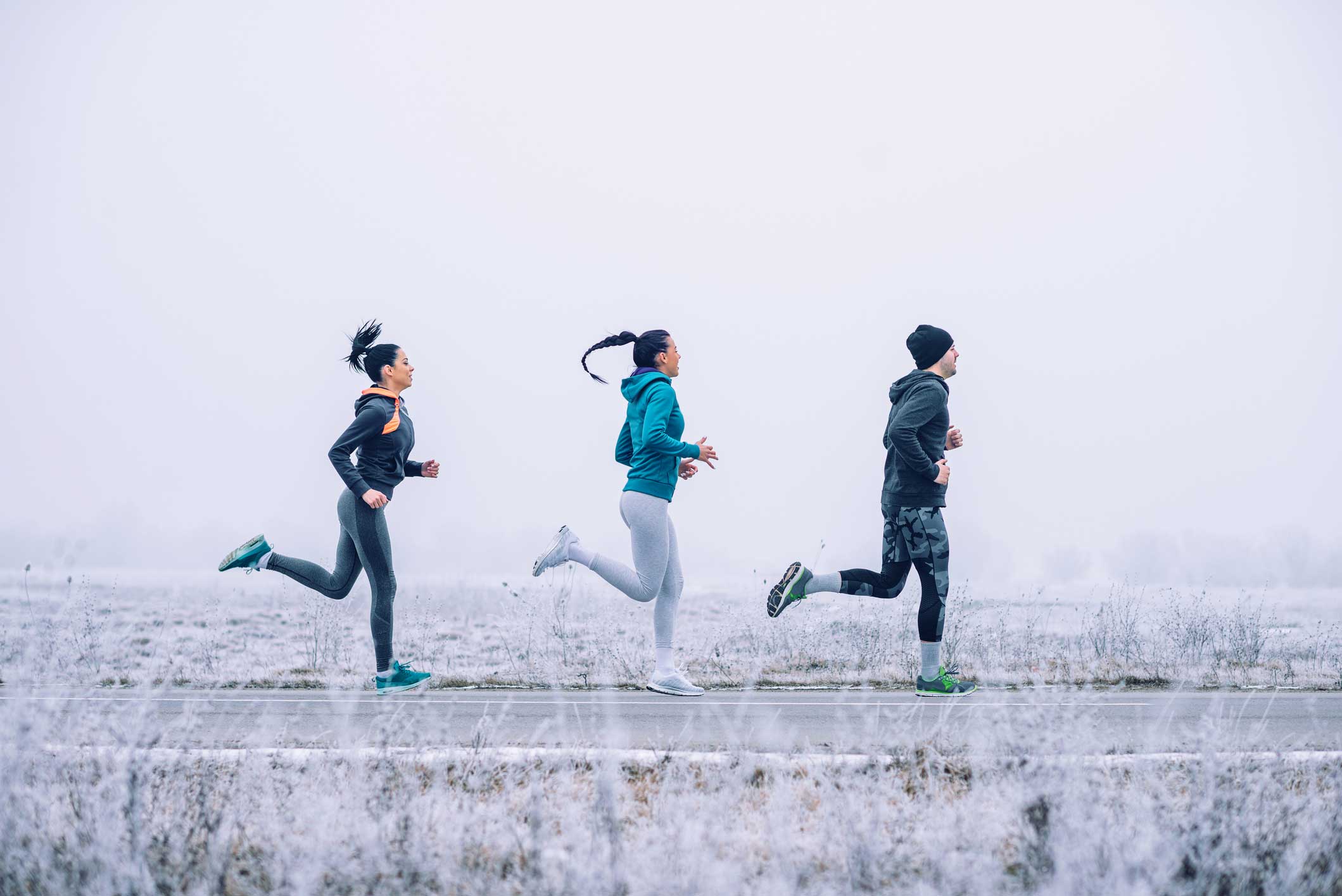By Lisa Hageman
No matter what time of year, breathing fresh clean air benefits your body.
According to research, outdoor exercise can increase your energy levels while helping to decrease tension, frustration and depression. In the colder months, also known as the winter weight-gain period, it’s easy to go into hibernation.
Here are a few tips before you head outdoors:
- Find a friend to stay motivated. Find someone who will commit to joining you in the morning or after work for walks or workouts. Friends can hold you accountable for showing up. Knowing someone is waiting for you to share the early darkness or encourage you to meet before you head home at night might be just the motivation you need to stick to your exercise routine. Four-legged friends also make great exercise partners and it’s important for them to get daily exercise, too. For most dogs, just picking up the leash gets them immediately excited to go outside.
- Dress appropriately. Staying safe while exercising in the winter means wearing bright colors so you stay visible and dressing in layers. When you start to sweat, remove a layer and then put it back on as needed. Start with a layer of synthetic material to wick perspiration from your body, followed by a layer of fleece. The top layer should be waterproof. Wear a thin pair of gloves under heavier mittens or gloves lined with wool or fleece to protect your hands. You can remove the heavier ones when your hands get sweaty.
- Beware of extreme temperatures combined with strong winds. In temperatures above 5 degrees, your chances of getting frostbite are less than 5 percent. Yet wind-chill levels below minus-18 degrees make frostbite possible on exposed skin in 30 minutes or less.
- Stay hydrated. It’s easy to forget to drink water when it’s cold outside but it’s equally important to drink before, during and after your workout even if you’re not really thirsty.
- Pay extra attention to what’s going on around you. It’s darker earlier and many roadways are narrowed by the snow and ice. Make sure you can see and hear traffic around you at all times.
- Try something different. Cross-country skiing and snowshoeing are great forms of exercise and might be easier than a run after a snowstorm.
All exercise can increase your levels of those feel-good hormones, endorphins. Your body works harder when you exercise in the colder weather, which may increase your endorphin production even more and produce a happier state of mind. Exposure to natural light is also a known depression fighter, especially against seasonal affective disorder, or SAD, a condition brought on by the shorter, darker days.
Nothing breaks up the boredom and the cycle of an inactive lifestyle better than getting outdoors. It takes you away from all of your daily distractions. Cold weather can also be invigorating, stimulating the senses and helping connect you to your surroundings. By dressing for outdoor exercise and preparing, you are placing yourself in the right mindset. The rest is up to you.
Lisa Hageman is the community education nurse at Backus Hospital.

